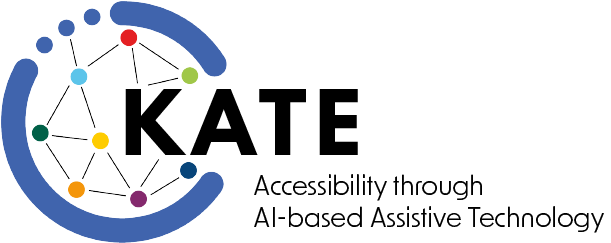Assistive robotics and interactive applications to assess and train motor and cognitive performance
Mentors: Prof. Dr. A. Woll & Dr. J. Krell-Roesch (Institute of Sports and Sports Science, KIT)
Motor function and cognitive performance decline with increasing age. There are large inter-individual differences with regard to magnitude and speed of this decline in older adults, particularly among persons with cognitive impairment or medical comorbidities. Therefore, in order to maintain independence and quality of life in older adults, it is important to provide them with individualized motor and cognitive trainings based on an individual’s current physical and cognitive status. However, this is not always feasible, particularly in nursing home settings with limited financial and personnel resources. The use of assistive technologies such as wearable robotic devices, or interactive technologies such as mobile applications may be an innovative approach to address this problem.
The PhD project will carry out the following specific research aims:
-
To examine whether assistive robotics such as exoskeletons for lower limbs can be used to compensate for motor impairments (e.g., slower gait speed), train motor function and prevent falls.
-
To examine whether (artificial intelligence-based) interactive technologies such as mobile applications can be used to assess and train motor and cognitive function.
The target population of the project are older adults with or without cognitive impairment, and in different settings (e.g., nursing homes, traditional housing). The PhD student is expected to build on pertinent existing research projects at the IfSS in order to design and conduct studies that address the aims outlined above. Data from both observational and intervention studies are also available for analysis. The PhD student will participate in the various research and educational activities of KATE, including attending lectures, workshops and meetings, and will prepare project-related manuscripts and presentations. Furthermore, the PhD student will closely collaborate with other PhD students and investigators, e.g., from the fields of computer science or robotics, as part of KATE.
Desired qualifications of the PhD student:
-
above average Master's degree in sports science or project-related field (e.g., computer science, engineering);
-
strong interest in movement science, biomechanics, and assistive robotics, preferably with a focus on old age;
-
advanced skills in statistics and programming (e.g., SPSS, R, Matlab);
-
good command of English and German language.

